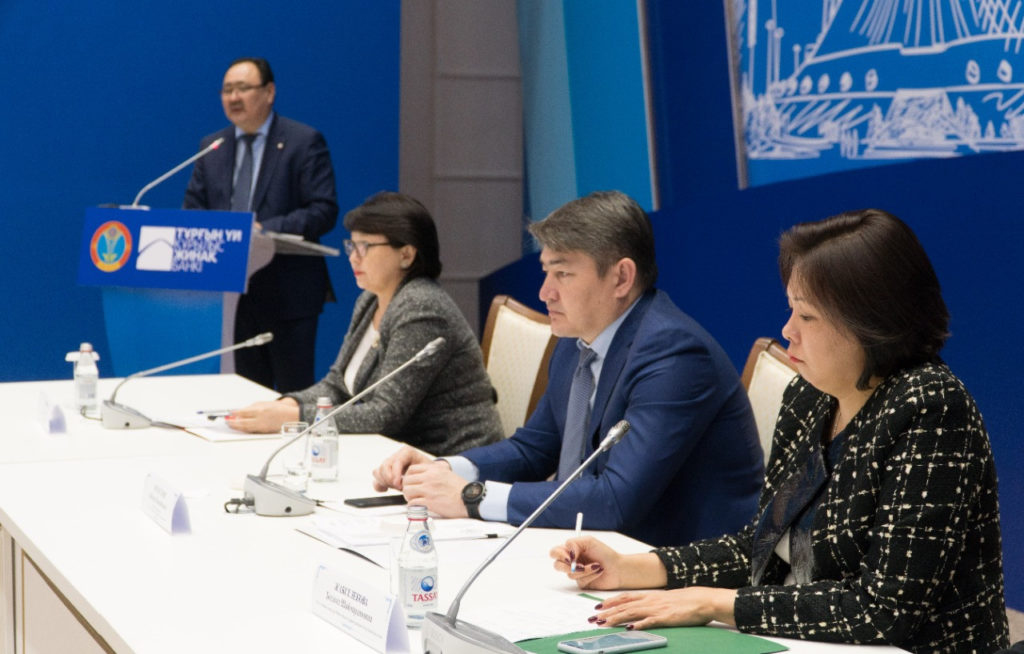NUR-SULTAN – As Kazakhstan prepares for the Jan. 1 launch of its Compulsory Social and Medical Insurance (CSMI), the capital Healthcare Department confirmed its readiness to implement the programme at the Dec. 10 city akimat (administration) meeting, reported its press service.
CSMI is designed to increase the quality of services, lower costs and make healthcare accessible to a greater portion of the population.
According to the department head Saule Kisikova, 102 of city’s 105 medical organisations have a medical information system and 103 are fully integrated with the Ministry of Healthcare and Saktandyru information systems. The remainder will be integrated by Dec. 15.
The city healthcare department will also create a CSMI council to “monitor each unit (dental, consultative and diagnostic, preventive examinations, laboratory diagnostics) beginning in January,” said Kisikova during the meeting.
The department will continue to conduct daily explanatory and consulting work with citizens at the Zhanuya centre.
“On Dec. 19, on the basis of iKOMEK 109, we will hold the next meeting, where the emphasis will be placed on outreach through a single contact centre,” she added.
Initially, citizens without insurance will receive separate explanations about compulsory health insurance benefits at all outpatient clinics and round-the-clock hospitals.
CSMI will provide an extended package of medical services, including expensive services, to insured citizens in addition to the guaranteed free medical care.
The Social Medical Insurance Fund (FSMS) was established in July 2017 to accumulate CSMI contributions and deductions, as well as reimburse medical organisations for providing services, as part of the current guaranteed medical care.
As of Oct. 31, the fund has collected 224 billion tenge (US$580.09 million), which beginning in 2020 will be used to pay for medical services through guaranteed medical care and medical insurance. Nearly 96 percent came from employee deductions and the remainder from contributions from individual entrepreneurs and individuals working under civil law contracts.
By regions, Almaty, Nur-Sultan and the Karaganda Region are the largest contributors.
The insurance package will include all planned medical services such as consultative and diagnostic assistance from narrow specialists, inpatient care (day care), planned inpatient care (round-the-clock hospitals), outpatient drug support and late recovery rehabilitation and rehabilitation treatment. All emergency medical services will remain in the guaranteed free package, including primary healthcare, ambulance and air ambulance, emergency inpatient care and palliative care.


